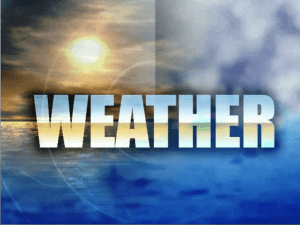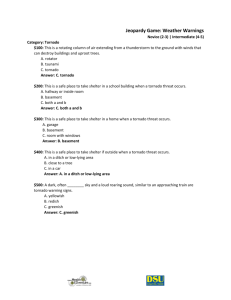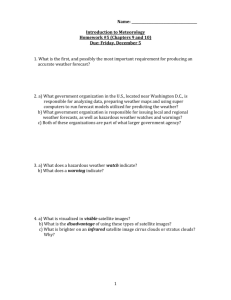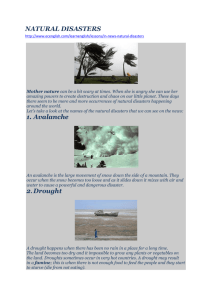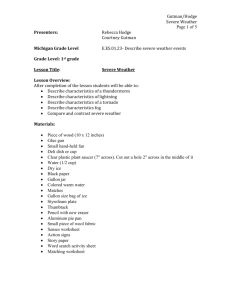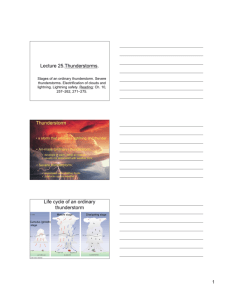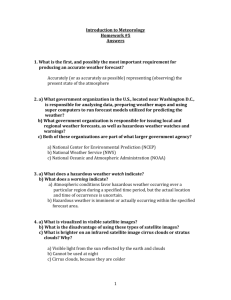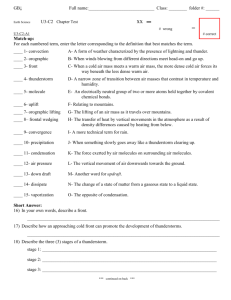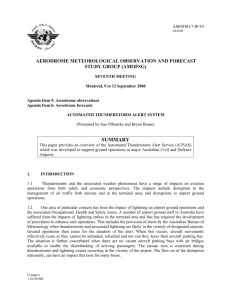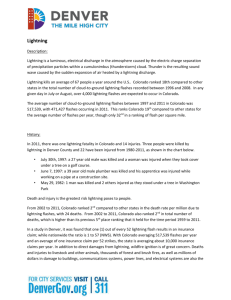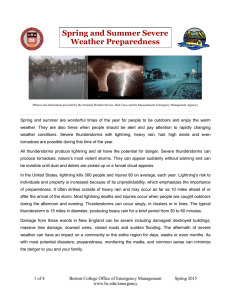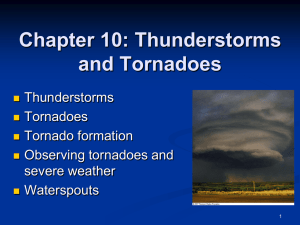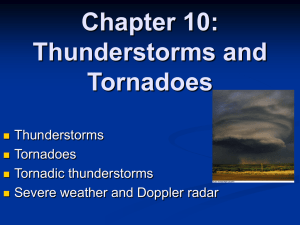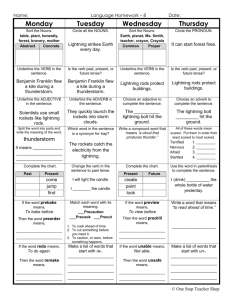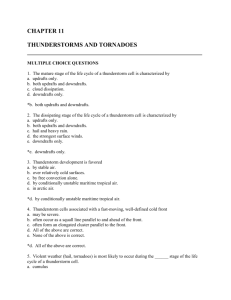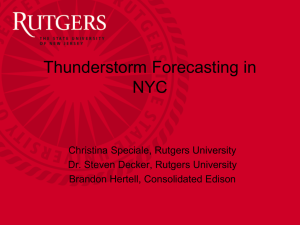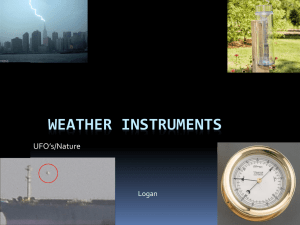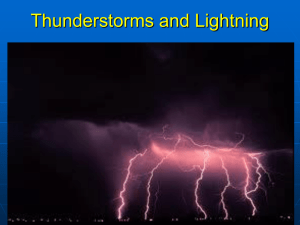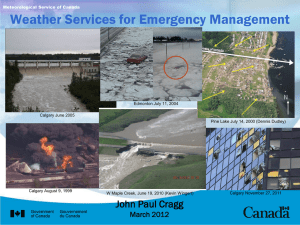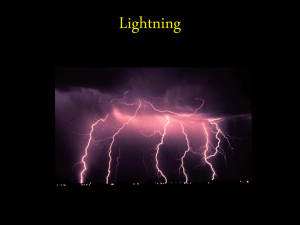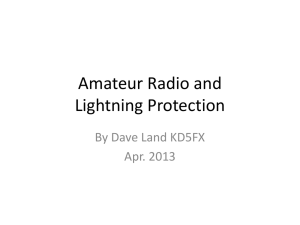Scientific Inquiry 08-29-12
advertisement
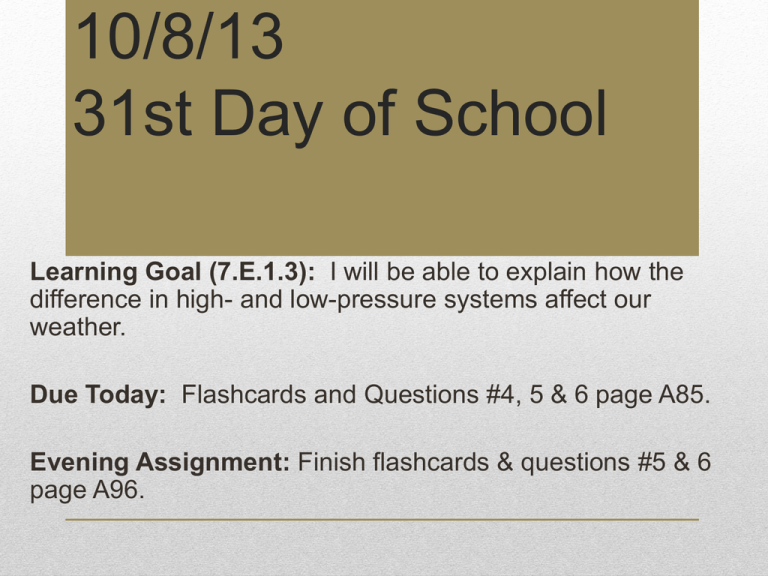
10/8/13 31st Day of School Learning Goal (7.E.1.3): I will be able to explain how the difference in high- and low-pressure systems affect our weather. Due Today: Flashcards and Questions #4, 5 & 6 page A85. Evening Assignment: Finish flashcards & questions #5 & 6 page A96. Use Intellicast.com to answer the following: 1) What type of pressure system is over Kansas City, MO? 2) What type of weather will they have? 3) Why was this morning cooler than yesterday morning? Do Now Use Intellicast.com to answer the following: 1) What type of pressure system is over Kansas City, MO? High Pressure 2) What type of weather will they have? Sunny, calm 3) Why was this morning cooler than yesterday morning? Cold front arrived yesterday Do Now 4. Explain how air moves differently in low- and highpressure systems. Knowledge Check 4. Explain how air moves differently in low- and highpressure systems. Low-Pressure System Air spirals around a lowpressure center. Moves inward and up Counter-clockwise High-Pressure System Air sinks into a highpressure center. Spreads outward Clock-wise Knowledge Check 5. If the weather becomes stormy for a short time and then becomes colder, which type of front has passed? Knowledge Check 5. If the weather becomes stormy for a short time and then becomes colder, which type of front has passed? A cold front has passed which leaves cooler, dry air. Knowledge Check 6. You check a barometer and observe that the air pressure has been dropping all day. Is tonight’s weather more likely to be calm or stormy? Knowledge Check 6. You check a barometer and observe that the air pressure has been dropping all day. Is tonight’s weather more likely to be calm or stormy? It is likely to be stormy. Decreasing pressure indicates that a low-pressure system or front is approaching. Both are associated with clouds and possible storms. Knowledge Check A thunderstorm is a storm with lightning and thunder. Watch the animation to help you visualize how thunderstorms form. http://www.canadiangeographic.ca/atlas/themes.aspx?id=weather&sub=weath er_phenomena_thunderstorm Thunderstorm formation A lightning is an electrical discharged produce by friction between air molecules moving in a thunderstorm. Watch the animation to help you learn more about lightning. http://video.nationalgeographic.com/video/kids/forces-of-nature-kids/lightning-101-kids/ Lightning A tornado is a violently rotating column of air stretching from a cloud to the ground. Watch the animation to help you learn more about tornadoes http://video.nationalgeographic.com/video/kids/forces-of-nature-kids/tornadoes-101-kids/ Tornadoes On the front of three cards write the following terms in big, bold letters: On the back side of the index card • Thunderstorm • Lightning • Tornado write in your own words the following information about each one: 1. Description: 2. How it forms: 3. Effects and dangers: http://t2.gstatic.com/images?q=tbn:ANd9GcSAiYiVODGAVdEYh8_sTLcTLdKVjieqyzhhwWO2mCi4MuJzx9AXA Thunderstorm, Lightning, and Tornado 1)Finish flashcards for: • Lightning • Thunderstorm • Tornado 2)Complete questions # 5 & 6 page A96. Evening Assignment
